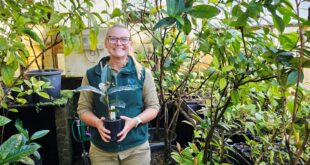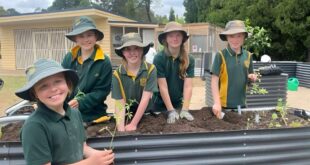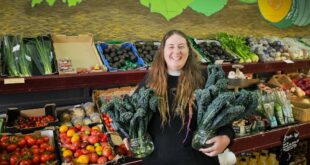
To make a change in one’s life takes effort, but to make change in your community takes a certain kind of courage – the courage to stand for something, and to back up your stand with action. As viewers saw when War on Waste aired on the ABC, some actions are big, others not so much.
The story of waste and how it matters to our present and our future, aided by Craig Reucassel’s engaging approach, reached 2.4 million metropolitan viewers, with half a million more plays on iView. The response to the program was enormous – an initial target of 10,000 survey participants blew out to 30,000 – and the ABC is now airing a follow up to the series. The Federal Government took notice too, with a $1.2 million funding boost to food rescue groups to combat the estimated 4 million tonnes of food thrown away each year – enough to feed 60 million people.
One might be forgiven for thinking that all of these big numbers refer to an insurmountable problem for one person to take on, but after watching War on Waste, one student at Blackheath Public School, Sidney Edwards, took on that challenge to action.
Before seeing the program, this ‘conscious’ 11 year old already had a notion that there was a problem with waste.
“I knew there was some kind of crisis, and I wanted to know just how bad things were.”
To Sidney, War on Waste alerted him to the fact that ‘things’ were very bad indeed: “I was affected by how much waste goes into landfill, and how easy it is for people to be careless.”
Wanting to help create positive change, Sidney realised that a simple objective could be achieved at his school. “I thought if everybody did a little bit, we might not solve the whole problem, but we would be getting somewhere.” With some organisational help from Canteen Co-ordinator Christine Curtis and the full support of Principal Jane Davies, Sidney spearheaded a truly classroom-focused composting revolution. “We compost at home. It can be reused and will grow food. It’s a resource.”
The school already had a Stephanie Alexander Kitchen Garden, complete with burgeoning plots of vegetables, juicy worm farm and compost bins and bays fed from the canteen. But there was a disconnect between classroom fruit breaks and other compostable leftovers of recess and lunchtime. By implementing classroom compost boxes to be emptied and cleaned daily, organising a roster for a compost crew to empty larger bins thrice weekly and giving a talk at the school assembly about the new initiative, Sidney’s composting revolution took off.
Students now compost their fruit and vegetable scraps in classrooms, and Sidney and his compost team, aided by Canteen staff, collect the boxes and deliver them, with canteen fruit and vegetable scraps, to the hungry garden composts. Not only does this reduce waste and landfill, it also feeds the garden. More importantly to Sidney, the initiative, much like War on Waste itself, raises awareness generally among the students and staff – the participation becomes habit, and the habit can be translated into home life or general consciousness. “If [people] can see this working here, they can see that other things work as well.” The Canteen, ever bombarded by Sidney’s passion for a better world, now also has a Reusable Coffee Cup program and sends its plastic bags, wrappers and even glad wrap to a local recycling facility.
“Sid’s passion inspired us to change our procedures with recycling and made us think about what other environmental impacts we have and our approaches to it – which has resulted in a real reduction in the amount of waste we put in the bin every week. We have students helping in the canteen – War on Waste reaches them here too.”
While I’m talking to Sidney, Christine stops to remind him that he and his composting crew need to keep on top of their task – the responsibility is not only to the planet, but to the staff and school itself – the initiative needs to be actively maintained. We workshop a few ideas on how to incentivise participation of some of the less involved classes – perhaps the school Houses might receive points for participation? Garden co-ordinator and music teacher Jennifer Lanyon also stops by to chat with Christine about the produce available for the Year 6 farewell dinner including spinach, lettuce, snow peas and coriander. All the while, Sidney listens patiently, aware that the cycle of food production and resultant compost is already going on as we sit and plan. I ask this School Captain how he felt about his part in the ‘War on Waste’.
“I found it was a lot of work at the start, but very rewarding. We got it started – and it’s making a difference. Maybe not a very big one, but it all counts, I guess.”
Morgan Boehringer



